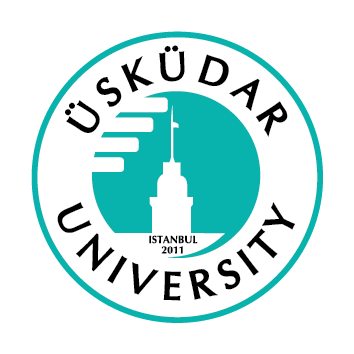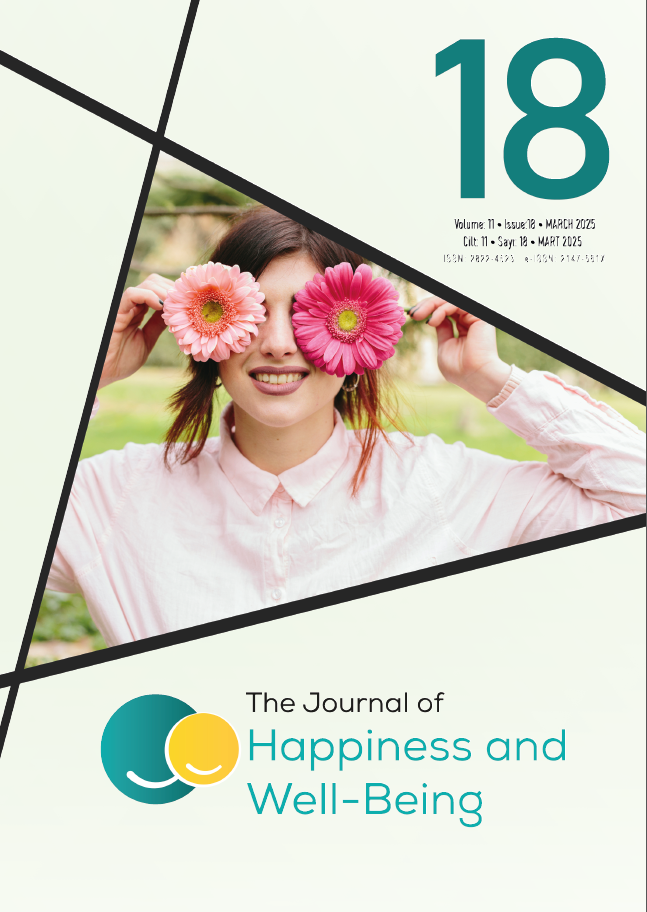Ethical Principles
Ethical Principles and Publication Policy
The Journal of Happiness and Well-Being is determined to meet and maintain ethical behavior standards at all stages of publication within the framework of the standards set by internationally recognized academic institutions in publication ethics. It provides guidance for ethical standards and best practices, especially the 'Committee on Publication Ethics (COPE)', the publication ethics committee. In this context, the authors are responsible for the ideas, opinions and comments in the articles and Üsküdar University cannot be held responsible. Studies that contain hate statements, discrimination, marginalization and similar unethical statements will not be evaluated. Scientific and academic ethical 'Committee on Publication Ethics (COPE)' understanding is taken as basis in all processes of evaluation, acceptance and publication of articles. In cases where it is seen that unreal or fabricated data are used, unethical techniques/methods are applied in studies with humans or animals, and it is seen that it is cited from other sources without reference, the relevant study will definitely not be evaluated and the cases will be reported to the author. Published texts can be used by citing in line with academic objectives, on the basis of intellectual property and copyright legislation; It may not be reproduced in whole or in part for commercial purposes. If there are previously published quotations, texts, tables, pictures, etc. in the article, the article author must obtain written permission from the copyright owner and authors and state this in the article. The author/authors are responsible for obtaining the necessary permissions. Compliance of the articles with scientific and ethical rules is the responsibility of the authors.
Referee Evaluation Process:
The editor and assistant editors clearly emphasize that the publications sent to the referees belong only to the authors and that the communication during the publication process is reliable and private. Reviewers and editors cannot discuss articles publicly.
Reviewers cannot copy articles for personal use and cannot distribute articles to third parties without the permission of the publisher.
Reviewers' reviews may not be published or redistributed without the permission of the author and publisher. Confidentialaity of the Referee(s) identities will be protected. In some cases, the relevant referee's impressions of the article to be published can be conveyed to other reviewers who have commented on the current article, at the discretion of the editor, and the reviewers can be informed during this process.
The publications/articles that are not deemed sufficient in terms of grammar rules, contain scientific errors/deficiencies, have no original value and do not comply with the publication principles of the journal are rejected by the editor and assistant editors. Before the publications/articles are sent to the referee, the editor or the assistant editors can suggest the author and request revision.
The Journal of Happiness and Well-Being is aware of its responsibility within the framework of international ethical standards to ensure that all publications/articles submitted to the journal continue the publication process independently, without bias. The editor and assistant editors should be informed of any conflict of interest between the author and the referees regarding the submission or evaluation of a manuscript.
Plagiarism is checked for publications and articles submitted to The Journal of Happiness and Well-Being. The matches displayed for each study by the relevant software are closely examined and the correct reference/citation matches are selected. As a result of the selection, the remaining matches are checked, errors are detected and the editors are informed. The final decision on the work is made by the editors in the light of the plagiarism control report of each work. Authors may be asked to correct the error in the report or the work may be returned to the authors.
Authors' ethical responsibilities
Author (s) who submit work to The Journal of Happiness and Well-Being are expected to comply with the following ethical responsibilities:
It is expected that the works submitted by the author (s) will be original. If the author (s) benefit from or use other studies, they must cite and / or quote completely and accurately.
People who do not contribute to the content intellectually in the creation of the study should not be specified as authors.
The situations and relationships of all studies submitted for publication that may constitute a conflict of interest, if any, should be disclosed.
The author (s) may request raw data regarding their articles within the framework of evaluation processes, in such a case, the author (s) should be ready to present the expected data and information to the editorial board and advisory board.
The author (s) must have the right to use the data used, the necessary permissions for research / analysis, or are obliged to ensure the protection of human and animal rights in their work. The ethics committee approval for the subjects used in the studies is deemed to have accepted that the study may be rejected in the absence of permissions for experimental research.
If the author (s) notices a mistake or error in their published work, at the early view or evaluation stage, the journal editor or publisher has an obligation to cooperate with the editor in informing, correcting, or withdrawing.
Authors cannot have their work in the application process of more than one journal at the same time.
Each application can be started following completion of the previous application. Another study published in The Journal of Happiness and Well-Being to not be sent.
Change of author responsibilities (such as adding authors, changing the order of authors, removing authors) cannot be proposed for a study whose evaluation process has started.
Studies that have been presented as a paper but not published, as well as from postgraduate theses at events with academic qualities such as meetings, symposiums, or congresses, are accepted for evaluation if they are prepared in accordance with the basic format of the scientific research.
Editors' duties and ethical responsibilities
Editors are responsible for every publication posted on The Journal of Happiness and Well-Being. In the context of this responsibility, editors bear the following obligations:
Editors should try to meet the information needs of readers and authors, in this context, it is obliged to carefully examine the complaints from the authors, referees or readers and respond in an enlightening and descriptive manner.
Ongoing improvement of the journal and conducting the processes to improve the quality of the studies published in the journal.
Editors are responsible from supporting freedom of thought, ensuring academic integrity and also they protect intellectual property rights and ethical standards and also to show clarity and transparency in terms of publication in matters requiring correction, explanation, informing the editorial board, when necessary.
Editors; is obliged to apply the "bilateral blind refereeing" method in the journal publishing policy. In this context, editors ensure that each work is completed in a fair, impartial, and timely evaluation process.
Editor and Referee Relations:
All referees who will evaluate the study/article should evaluate with the method of blind refereeing in line with the understanding of objectivity, scientificness and should be selected in accordance with the subject. Subjects that are admitted by referees should be convenient with acceptance conditions of journal.
Another duty of editors is that they should provide to referee to appropriate data guidelines and provide support as a guide when it is needed.
Editors are responsible for keeping the referee community up to date, overseeing possible conflicts between referees, and performance monitoring are among the duties of the editors.
The Journal of Happiness and Well-Being Article Categories
Research Article:
Research Articles are studies that include original research from the field of …………… in which the findings obtained by scientific research methods are discussed, literature study, method description and research findings/results are conveyed.
Review Article:
Review Articles are the studies in which are formed by previous studies on a subject in the field of ………. or …………. are reviewed in detail, and the information obtained from these studies is discussed together with the current literature on an axis determined by the author.
Interaction/Comment
These are the studies in which the author discusses an idea in the field of communication or social sciences based on his own views, and emphasizes the importance of a subject with justifications.
Book Review:
It is a study in which a book is examined and evaluated in terms of subject, content and importance.
In this type of author(s), after transferring the summary information about the book, they make evaluations about the subject and content of the book and make criticisms about the purpose of the book, the comprehensiveness of the content, its contribution to the field, and the missing points.
Interview:
These are the studies carried out with experts in the field of communication or social sciences to present their perspectives on a current issue, to convey the discussions, to identify the deficiencies in these discussions and to offer suggestions.
Translation:
It covers Turkish-English, English-Turkish studies in the field of communication or social sciences, which are prepared with the permission of the author of the original text and the place of publication and by adhering to the text exactly.
Open Access Policy
All issues and related contents The Journal of Happiness and Well-Being (JHWB) are freely accessible on the internet in accordance with the policies of the Budapest Open Access Initiative.
Readers may read, download, copy, search and link the full text of journal articles for non-commercial purposes without obtaining permission from the publisher or author.
Open access articles are licensed under Creative Commons Attribution-Noncommercial-No Derivative 4.0 International (CC BY-NC-ND 4.0).
Copyright
In The Journal of Happiness and Well-Being (JHWB), which adopts an open access approach, studies that have not been published, accepted for publication and/or submitted to another journal for evaluation are evaluated.
In the process of submitting the article via DergiPark, the authors upload the signed 'Copyright Transfer Agreement' form in the relevant system and the publication rights of the work are transferred to The Journal of Happiness and Well-Being (CC BY-NC-ND4.0) licensed with Creative Commons Attribution-NonCommercial-Non-Derivative 4.0 International JHWB) transfers.
This form contains the following information:
The Journal of Happiness and Well-Being I declare/declare that I have transferred to the Journal of Happiness and Well-being (JHWB), licensed under CC BY-NC-ND 4.0).
Download Copyright Transfer and Author Agreement: The Journal of Happiness and Well-Being (JHWB) Copyright Transfer and Author Agreement


